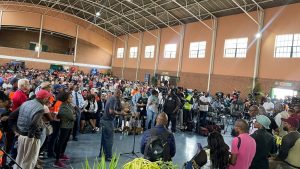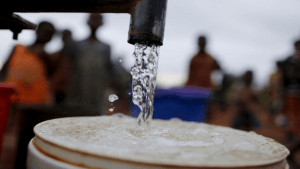Acting Health Director General, Dr Anban Pillay, says while government would like the test the entire country for COVID-19, the lack of availability of testing kits globally makes this a difficult task.
Pillay has confirmed that the Gauteng government has moved from a mass screening to a targeted tracing strategy – which is expected to be more effective.
There has been criticism among some academics of government’s testing strategy. South Africa has more than 19 000 coronavirus cases nationwide, almost 9 000 recoveries and 369-deaths.
Dr Pillay says they have faced challenges. “Because we have to procure these MCR kits, they are quite expensive. Around R700 per test. These kits are not freely available globally. The companies that produce these kits, they have to supply the entire globe. Every country is doing testing, so they cannot keep up with the volume. Whatever we order, we’re getting a small portion of it and it comes on a weekly basis. While ideally, every country including us would like to test everyone, the reality is there are not enough kits around the world.”
In March President Ramaphosa announced that thousands of field workers would conduct mass screenings, however, this has not proved very effective in Gauteng. The province has now opted to focus on testing and tracing as confirmed cases exceed 1 200.
Gauteng currently has the second-highest number of COVID-19 cases behind the Western Cape. This as authorities say, testing and screening in the province is increasing day-by-day.
Dr Pillay says they’ve had to alter their testing strategy for the province to a more targeted approach.
“This virus changes from week to week. The testing has certainly increased in the province. We were doing the door-to-door and that was intended to randomly identify people in the community who are potentially sick. It did not produce the types of outcomes we were looking for. We were doing 50/60 tests in order to find one person. We decided that we must move to more targeted testing. We identify one person who is positive, you then test everybody in that surrounding area.”
In the video below, the Gauteng Health Department says some townships in the province are becoming hotspots for COVID-19.
Member of the Mayoral Committee for Health and Social Development in the City of Johannesburg, Sibongile Eunice Mgcina, says since the establishment of the 28 testing centres, a lot more Johannesburg residents have come forward to get tested. Mgcina also changed her strategy after initially only calling for those with symptoms to visit the centres.
“We have been receiving quite a positive response from our people since we started with screening and testing. I can confirm that we are almost at the million in terms of screening. In terms of testing, we are sitting at 29 000 as the city of Johannesburg.”
In the video below, Gauteng Premier David Makhura says while the province is in control, tough times lie ahead.
There has been concern that the virus might ravage densely populated areas and the government is expanding ways of accessing these areas.
Recently, taxi ranks have been kitted with walk-in sanitation tunnels along with testing stations as part of the government strategy to widen their reach. Taxi commuters have mixed feelings about COVID-19 testing at taxi ranks.
“If they come and test, I will allow them, if they find me positive early, it’s going to be easy to remove the virus.”
Some were, however, not so optimistic.
“I cannot test because I a fine, my baby is not coughing, I am very fine.
As testing in Gauteng continues, authorities are urging you to engage in constant hand washing and remain indoors as far as possible.






